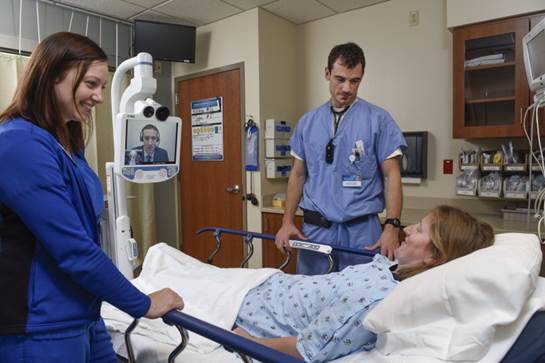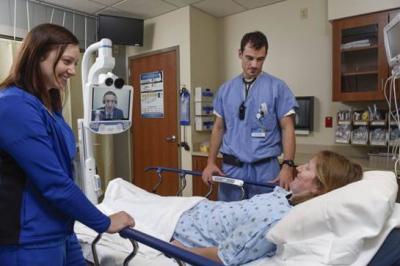A new study revealed that "Telestroke" services, which provide remote healthcare using video communication to consult with a stroke specialist who may be miles away, can lead to better outcomes for patients, especially during the lockdown crisis associated with the COVID-19 pandemic.
Lead author Dr. Atif Mehrotra, an associate professor of health policy and medicine at Harvard Medical School, stated in a university press release: "Our findings provide significant evidence that remote healthcare services, especially those related to stroke care, can improve treatment and save lives." Co-author Dr. Andrew Wilcock noted that the benefits of healthcare via video communication are highest for rural Americans, although many rural hospitals are not yet equipped to provide such services. Wilcock, an assistant professor of medicine at the University of Vermont and a visiting fellow at Harvard Medical School, added that the results of this study highlight the need to address the financial barriers these smaller hospitals face in providing remote healthcare services and specialized telestroke services.
The researchers explained that patients experiencing stroke symptoms require rapid assessment and treatment by experts to prevent brain damage and serious disability or death. However, the problem is that many hospitals lack stroke care teams available 24/7. To compensate, nearly one-third of American hospitals offer telemedicine consultations with stroke specialists in other facilities, who are sometimes hundreds of miles away from both the hospital and the patient. Notably, the survival rates of this advanced treatment technique were 13% higher among patients in hospitals with remote stroke care compared to those without such services.
Two stroke experts unrelated to the study agreed that remote stroke care services can indeed save lives. Dr. Salman Azhar, director of stroke care at Lenox Hill Hospital in New York, stated that the results confirm what numerous smaller studies have shown—that providing specialized neurological stroke care via remote video technology can increase the number of patients receiving treatments that preserve their brain from damage and save lives. Meanwhile, Dr. Andrew Rogov, head of stroke services at South Shore University Hospital in Bay Shore, New York, agreed that this new technology could reduce patients' chances of death. He added, "It will be interesting to see how remote stroke care affects outcomes in younger individuals, as this study included only older patients."




